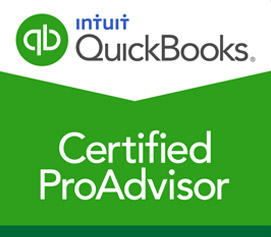
You’re probably aware that the federal government is handing out money in the form of an Economic Impact Payment (EIP). You may even have received yours by now. That’s the good news. For many, though, this “free” money poses a risk. Swindlers are opportunists, and where there’s money, there’s the chance for a scam. That means some recipients of the EIP may unwittingly pass off their funds to a fraudster if they don’t know what to watch for.
A Little Background
The EIP is part of the government’s CARES Act. The intent is to provide financial relief for eligible individuals who have been impacted by the COVID-19 pandemic. This includes all U.S. citizens and U.S. resident aliens who have a work-eligible Social Security number and meet the income eligibility requirements as noted on the IRS website at irs.gov. In most instances, these funds will be direct-deposited into the taxpayer’s bank account on record at the IRS.
For some, however, that’s not an option. Individuals who have typically received a tax refund in the form of a check will also receive the EIP in check form. And here’s where the trouble starts.
Always Ready to Take Advantage
Scammers are always looking for ways to get unsuspecting individuals to hand over their money. Or their personal information, at a minimum. They may do this through a phone call requesting that the check be signed over to them. They may also contact these people by email and try to get them to “verify” their tax filing information, informing them that they won’t get their money until they’ve taken this step. In reality, these hucksters are searching for personal information that can later be used to file a false tax return in an identity theft scheme.
Here’s What You Need to Know
Keep these points in mind to protect yourself from scammers.
- The IRS will direct-deposit your EIP into the bank account they have on record from your 2019 or 2018 taxes.
- If no bank account information is on record at the IRS, they will mail a check to the address they have on file.
- The IRS will NEVER call you and ask you to verify information of any kind. If you get a call from someone who says they’re with the IRS, hang up immediately.
- DO NOT give your banking information, tax information, Social Security number, or any other personal information to anyone you don’t know, even if they say it’s the only way for you to get your EIP check. This is a hoax.
- If you get a call, text, or email claiming that you’ll get your money faster by working through the person contacting you, ignore the communication. Do not click on any links or provide any information.
- If you receive a check in the mail that looks suspicious – for instance, it ends in cents – it’s probably a fake, especially if you have to “verify” information online or by phone before you can cash it.
- Ignore anyone who tries to get you to pay a debt of some type with your EIP check. This is a scam, and the “debt” is probably fake.
If in Doubt
If someone contacts you about your EIP check and you’re wondering whether it’s legitimate, give the IRS a call and explain the situation. They have people working around the clock to bring scammers to justice. If you can’t get through to the IRS, call Adams Accounting Solutions for help in determining whether you’ve been approached by a scammer or not. It’s our job to help keep clients educated and safe when it comes to their financial health. You can reach us at 913-888-9100.



